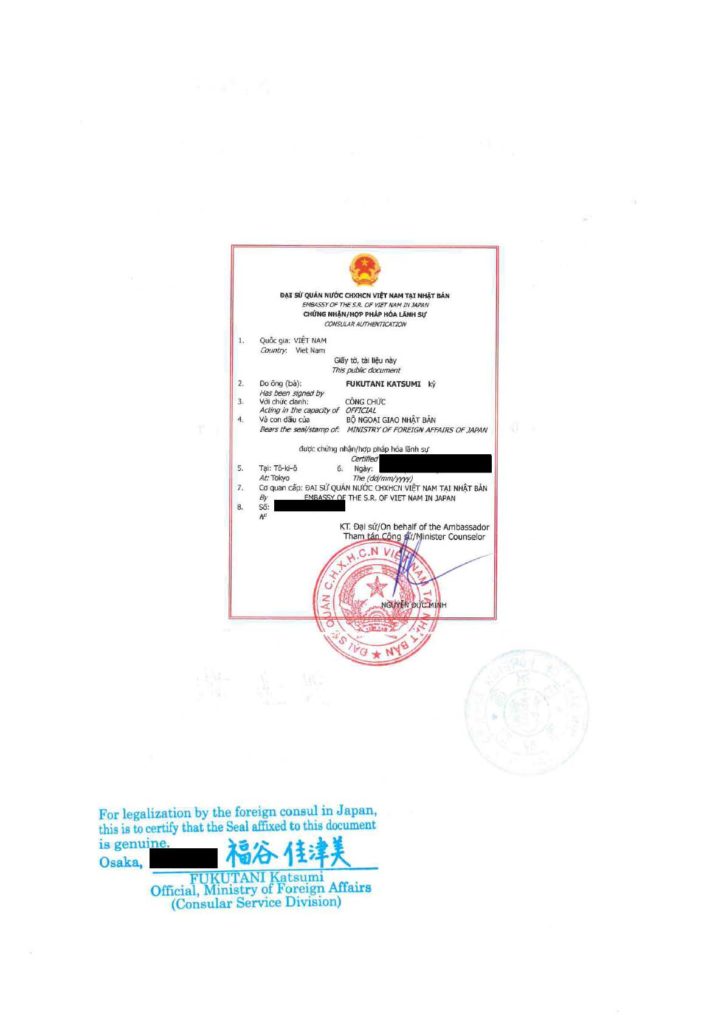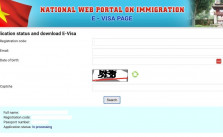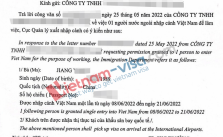Vietnam Consular Legalization A Comprehensive Guide
Vietnam is a country that has become increasingly popular in recent years due to its booming economy and picturesque landscapes. For individuals who need to submit documents in Vietnam, consular legalization may be necessary. In this article, we will provide a comprehensive guide to Vietnam consular legalization, including what it is, who needs it, how to do it, and the pros and cons of consular legalization.

What is Vietnam Consular Legalization?
Consular legalization is a process by which a document issued in one country can be legally recognized in another country. In the case of Vietnam, consular legalization is required for certain types of documents issued outside of Vietnam, such as birth certificates, marriage certificates, and other legal documents.
Who Needs Vietnam Consular Legalization?
Individuals who need to submit documents to Vietnamese authorities or organizations may need to have their documents consular legalized. This includes individuals who are applying for work visas, residency permits, or other legal documentation that requires proof of identity or citizenship.
How to Obtain Vietnam Consular Legalization
To obtain Vietnam consular legalization, you will need to follow these steps:
- Have your documents authenticated by the relevant authority in your home country.
- Submit your authenticated documents to the Vietnamese embassy or consulate in your home country.
- Pay the consular fee and wait for your documents to be processed.
- Collect your consular legalized documents from the Vietnamese embassy or consulate.
Pros and Cons of Vietnam Consular Legalization
As with any legal process, there are pros and cons to obtaining Vietnam consular legalization. Here are a few to consider:
Pros
- Provides legal recognition for foreign documents in Vietnam.
- Allows for easier processing of paperwork and documentation.
- Can help streamline the visa application process.
Cons
- Can be a time-consuming and expensive process.
- May require additional steps, such as document authentication, that can further delay the process.
- Certain types of documents may not be eligible for consular legalization.
Alternatives to Vietnam Consular Legalization
There are a few alternatives to Vietnam consular legalization that you may want to consider:
Notarization
In some cases, having your documents notarized by a public notary in your home country may be sufficient for certain types of documentation. However, notarization may not be accepted by Vietnamese authorities or organizations in all cases.
Apostille
An apostille is a simplified form of consular legalization that is recognized by countries that have signed the Hague Convention treaty. However, Vietnam is not a signatory of the Hague Convention, so an apostille will not be accepted for documents submitted in Vietnam.
Step-by-Step Guide to Obtaining Vietnam Consular Legalization
If you’re ready to begin the process of obtaining Vietnam consular legalization, here is a step-by-step guide to follow:
- Identify which documents need to be consular legalized.
- Have these documents authenticated by the relevant authority in your home country.
- Contact the Vietnamese embassy or consulate in your home country to learn about their specific requirements and procedures for consular legalization.
- Submit your authenticated documents to the Vietnamese embassy or consulate and pay the consular fee.
- Wait for your documents to be processed and collect them from the embassy or consulate once they are ready.
Tips for Obtaining Vietnam Consular Legalization
To make the process of obtaining Vietnam consular legalization as smooth as possible, here are a few tips to keep in mind:
- Begin the process as early as possible to allow for any delays or unforeseen circumstances.
- Ensure that you have all necessary documentation and fees before submitting your documents.
- Consider using a professional service to help with document authentication and consular legalization.
The Best Way to Obtain Vietnam Consular Legalization
The best way to obtain Vietnam consular legalization will depend on your specific needs and circumstances. However, working with a professional service that specializes in document authentication and legalization can help ensure that the process is done correctly and efficiently.
Conclusion
Vietnam consular legalization can be a complex process, but it is a necessary step for individuals who need to submit foreign documents in Vietnam. By following the steps outlined in this guide and considering the pros and cons of consular legalization, you can make informed decisions about how to proceed.
FAQs
- Do all types of documents require consular legalization in Vietnam? No, only certain types of documents, such as birth certificates and legal documents, require consular legalization in Vietnam.
- How long does the consular legalization process take in Vietnam? The length of time required for consular legalization in Vietnam varies depending on the embassy or consulate and the type of document being legalized.
- Can I obtain Vietnam consular legalization remotely? In some cases, it may be possible to obtain Vietnam consular legalization remotely. Contact the Vietnamese embassy or consulate in your home country for more information4. What is the difference between consular legalization and apostille? Consular legalization and apostille both provide legal recognition for foreign documents, but apostille is a simplified form of consular legalization that is recognized by countries that have signed the Hague Convention treaty.
- Can I use notarization instead of consular legalization in Vietnam? In some cases, notarization may be sufficient for certain types of documentation. However, it is important to check with Vietnamese authorities or organizations to ensure that notarization will be accepted.



